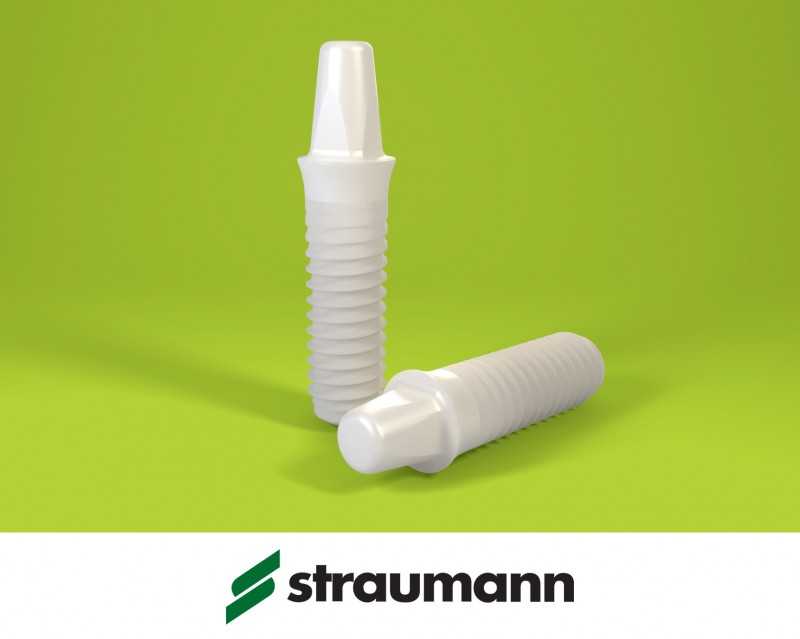
Dental implants
Dental Implants – Radiant smile with artificial tooth roots
Dental implants offer the best solution for the treatment of one or more tooth gaps as a fixed, esthetic denture. Gaps in the teeth are nothing to be ashamed of – because of an accident or a dental disease, the loss of teeth has happened quickly. With modern dental implants we can fill in the gaps in the dental practice. Close Ludwig and colleagues well again. The artificial tooth roots are in no way inferior to the natural teeth in terms of stability and bite resistance. Compared to conventional prostheses, they offer decisive advantages, such as optimal wearing comfort, a very natural appearance and hardly any problems when speaking or eating.
Competence in the dental practice Ludwig & Colleagues in Fürth
Dentist Ludwig in Fürth has many years of above-average experience in implantology. Through tested quality standards and extensive expertise – throughout the practice team – we achieve an optimal implantation course and a very good healing rate. Our goal is the long-term trust of patients in our treatment competence. When it comes to dental implant treatment, we attach great importance to providing all-round care in our practice: from the first consultation through to aftercare, our dentists are there to help and advise you individually.
Ceramic implants as an allergy-free solution
As a metal-free alternative we offer in addition to the proven and stable dental implants made of titanium modern all-ceramic implants made of zircon. These ceramic implants are biocompatible and allergy-free. Innovative processing methods make ceramic implants as fail-safe today as titanium implants. On zirconia ceramics, moreover, little plaque can accumulate, which tends to reduce the risk of peri-implantitis. Further advantages of ceramic implants are their high compatibility and the light color in terms of their aesthetic impression in combination with the new dental prosthesis – whether crown, fixed dental bridge or prosthesis.
Procedure of the dental implant treatment
Which dental implant solution comes into question for you and how the procedure of the treatment is concrete, we clarify in a first personal consultation. We begin the therapy with an accurate report, discuss necessary pretreatments such as bone augmentation, and develop a detailed treatment plan before actually performing the implant.
Exact operation planning with 3D X-ray technology
At our dental practice in Fürth, we use modern digital 3D X-ray technology to plan the implant procedure. With the so-called digital volume tomograph, abbreviated DVT, we record the jaw structures in layers. The three-dimensional images enable us to exactly determine the point to be implanted. The operation will be even more gentle and secure for you.
Gentle dental implant surgery with computer-guided implantology
The actual surgical treatment is painless and possibly under general anesthesia. Thanks to precise 3D planning and the procedure of computer-assisted implantology, implant treatment is particularly safe. The procedure is considered minimally invasive. A drilling template specially made for your dentition serves as a basis for setting the implant and guides the drill used. The risk of injury to the surrounding teeth or the sensory nerves is reduced to a minimum.
Once the implant is inserted and firmly bonded to the jawbone, after a healing period of several weeks, the final denture solution from our partner laboratory can be firmly attached – and you will receive stable, reliable and natural-looking teeth!
In our extensive online brochure you will find more information about dental implants.
Frequently asked questions about dental implants:
What are dental implants?
These are artificial tooth roots that can be used to replace lost teeth both aesthetically and functionally. Implants are firmly anchored in the bone and have the same stability as the natural teeth. An implant consists of two elements, namely the artificial tooth root and the crown on it. Fixed bridges or anchoring elements for removable dentures can also be realized with implants.
Are there any rejection reactions or allergies to dental implants?
No, because dental implants are made of very well-tolerated titanium. There are no documented rejection reactions so far.
What is the life span for dental implants??
The lifespan of implants is scientifically proven to be very high. With a professional approach and with the appropriate care, the chances of success are excellent. Dental implants often have a better prognosis than conventional dentures.
I have a temporary tooth gap after implantation?
This is not the case, as a provisional denture is made during the healing phase. This can be a partial denture or a small adhesive bridge. The temporary also serves as protection or can be integrated into a protective rail.
What advantages do implants offer over conventional treatment??
Dental implants are in no way inferior to natural teeth in terms of functionality. In addition, it is not necessary to grind adjacent teeth in tooth loss, as would be the case with a bridge. This allows healthy tooth substance to remain healthy and complete. In addition, we only perform implant treatment when it is really necessary and the natural tooth does not have a good prognosis. Tooth preservation is very important to us and always has top priority.
What does implantation cost??
For the costs, no general statement can be made, as they are always dependent on the current findings of the individual patient. They depend, for example, on the number of implants, the type of subsequent restoration and other factors. Of course you will receive a cost estimate after the examination.
Implants are paid by the health insurance?
The costs for implants are not covered by the statutory health insurance. But it is often possible a refund in the amount of the standard care for dentures. However, those insured under the law also have the option of taking out additional insurance with which part of the costs can then be billed. The premium amount depends on the extent of the insurance.
Our tip: Under www.waizmanntabelle.de you receive a comprehensive comparison to all important dental insurance and help in finding the right product for you.
We are happy to assist you in drawing up a installment payment agreement that takes into account your personal financial situation.
Is the implantation painful?
No, as the procedure is performed under local anesthesia or – if desired – under general anesthesia. You feel no more than, for example, pulling a tooth.
Are there restrictions on the use of implants?
Although most patients are eligible for implant treatment, there are some limitations: If you are a smoker, you will have to expect a worse course of wound healing. Diabetics usually have no problems with implants if they are well-adjusted. We strongly recommend that you take care of the prophylaxis of gingivitis or periodontal disease.
The bone strength in the jaw is not always sufficient for an implant. If this is the case, the bone can be artificially constructed. This must be done before the actual implantation, we will inform you about further details in a personal conversation.
What should be considered in oral care after implantation??
First, the implantation site should not be stressed. Also with the cleaning caution is necessary. The other mouth area should be taken care of thoroughly to prevent inflammation. We recommend antiseptic mouth rinses, e.g. Chlorhexidin and inform you in the context of treatment on this issue.
How long do implants have to heal??
The implant must first grow together firmly with the bone so that a good base for the new tooth is available. Depending on the patient and the quality of the jawbone, this takes between six and eight weeks; normally, there are no complaints or pain.
Can there be complications with implants??
In individual cases, inflammation can occur, especially during the healing phase of the implants, especially if oral hygiene is insufficiently performed. Failure to treat these may result in bone loss, which ultimately leads to failure of the implant.
Dental implants have to be cared for like natural teeth?
A dental implant must be treated just as thoroughly as natural teeth. Our prophylaxis specialists will gladly explain the special features and show you how and with which instruments oral care is carried out. As a rule, after the implantation a dental check should be carried out every six months during which a professional tooth cleaning is also carried out.
Arrange a consultation for dental implants in the dental office. Ludwig and colleagues in the metropolitan region of Fürth, Nuremberg and Erlangen!
Related Posts
-

Dental Implants: Costs, Manufacturers, Experiences and Treatment
Everything about dental implants There are certainly many questions that you would like clarified if you lose one or more teeth and this through Dental…
-

Dental implants hannover, podbi344 implantologie hannover
Implantology Hannover – Quality of life with safety: dentures and dental implants Hannover Tooth loss is always a loss of quality of life. In our dental…
-

Implantology in frankfurt, dental dentist frankfurt
Implantology in Frankfurt The reasons for lost own teeth are different, but mostly due to periodontitis. Implantology is the most advanced way to replace…
-

Dental implants of her dentist in kassel
Dental implants – fixed dentures for a vital charisma and a good mouthfeel Missing teeth burden the self-esteem especially when the tooth gap (s) are in…
